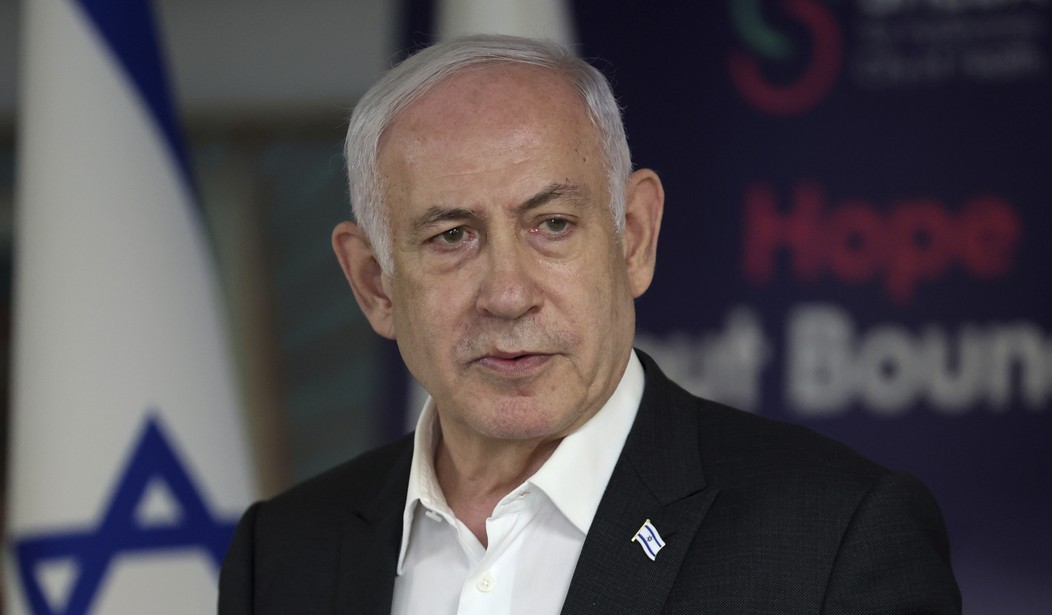Now this is how you play three-dimensional chess. After the assassination of Ismail Haniyeh in Tehran, Iran threatened massive retaliation ... but hesitated. Hezbollah also threatened to attack on an unprecedented scale ... but has yet to do so. Intel out of the region suggested earlier this week that Iran might wait until the Israeli holiday of mourning on Tisha B'av, if indeed they decide to attack at all, which suddenly sounded less firm later this week after Israel threatened to retaliate against all of their enemies as disproportionately as they could.
Tisha B'av starts on Monday. Today, Benjamin Netanyahu agreed to meet with Hamas negotiators and the international mediators ... on Thursday:
Prime Minister Benjamin Netanyahu’s office said an Israeli delegation will attend ceasefire-for-hostage negotiations with Hamas on August 15, making the announcement immediately after the United States, Egypt and Qatar issued a joint call for talks to resume next week with the aim of swiftly concluding a deal.
“It is time to bring immediate relief both to the long-suffering people of Gaza as well as the long-suffering hostages and their families. The time has come to conclude the ceasefire and hostages and detainees release deal,” said the Thursday statement signed by US President Joe Biden, Egyptian President Abdel Fattah el-Sissi and Qatari Emir Tamim bin Hamad Al Thani.
The statement said that after working “tirelessly” for months, the mediators are ready to present Israel and Hamas with a final proposal, with only the details for implementing the agreement yet to be worked out.
First off, let's muse on one of the claims made against Netanyahu after the Haniyeh strike. Critics, including some unnamed officials in the US, accused Netanyahu of attempting to spike a hostage deal that they claimed was all but set. The same people and media outlets also claimed that Haniyeh was a "moderate" who was the only hope of reaching some sort of deal to end the war in Gaza, and that's why Netanyahu had him greased.
If that's the case, then why bother sending a delegation to the talks? Who's representing Hamas at these negotiations, anyway? Could it be that Haniyeh was actually the problem, and that his assassination sent a message to Hamas that they needed to start offering concessions toute suite before Israel decided to select another negotiator for them? Because all of a sudden, the impossibility of reaching an agreement without Haniyeh has suddenly dissipated.
Next, the timing looks pretty interesting as well. Iran could still choose to attack, but Netanyahu could then end the talks on that basis and put the onus back on Tehran. The mullahs seem hesitant to test Israel's threat to essentially decapitate the regime and the IRGC in response to any attack from Iran, and this gives them more reason to wait it out. It might also incentivize the Iranians to press Hamas for the necessary concessions to close the deal and moot the need for a retaliatory attack.
The US has already signaled that the pressure on Israel to cut a deal will end with any such attack:
However, the senior US official acknowledged that if Iran “launches a major war in the Middle East with some massive attack on Israel, which they’re threatening in coordination with other groups, that’s obviously going to significantly jeopardize any hope of getting a ceasefire in Gaza, because we’ll very much be focused on other things.”
The official also said Iran has no right to attack Israel militarily following the assassination of Hamas leader Ismail Haniyeh in Tehran last week, which was widely attributed to Israel.
Translation: Iran has to choose between direct escalation with Israel and saving what's left of its proxy in Gaza. Given the risks involved, the latter seems to be the rational choice, and Iran's hesitation suggests that they're already aware of it.
Another reason Iran might choose to take the easy way out is that Netanyahu's standing in Israel is firming up. The Haniyeh hit and potential for all-out war hasn't damaged Netanayhu or his Likud Party at all. Quite the opposite, at least for now:
The Likud party has overtaken Benny Gantz's National Unity party for the first time since October 7, according to a survey published by Maariv on Thursday.
Against the backdrop of an impending counterattack from Iran and Hezbollah, for the first time since the beginning of the war, the Likud party returns to being the largest, while the National Unity party continues to deteriorate. This is according to the survey by Maariv conducted by "Lazar Researches," led by Dr. Menachem Lazar in collaboration with Panel4All.
Similarly, for the first time since October 7, Benjamin Netanyahu has made a dramatic comeback and overtaken Gantz on the matter of public preference for prime minister.
Gantz' abrupt departure from the unity government in a fit of pique has turned into "a failed political bet," the study concludes. Since Gantz left in May, Netanyahu and his hard-line war policies have apparently gained in popularity. That makes total escalation a real possibility for Israel, and Iran has to factor that into its calculations.
So now it seems more likely than not that we'll have a week to wait before Iran or Hezbollah attack on a large scale ... unless they just decide to roll the dice and see whether Israel is serious and the US remains firm. But if Tehran wanted that kind of gamble, the time to roll those dice would have been immediately after Haniyeh's assassination, not several days later when Israel organized both its defensive and offensive capacities.








Join the conversation as a VIP Member